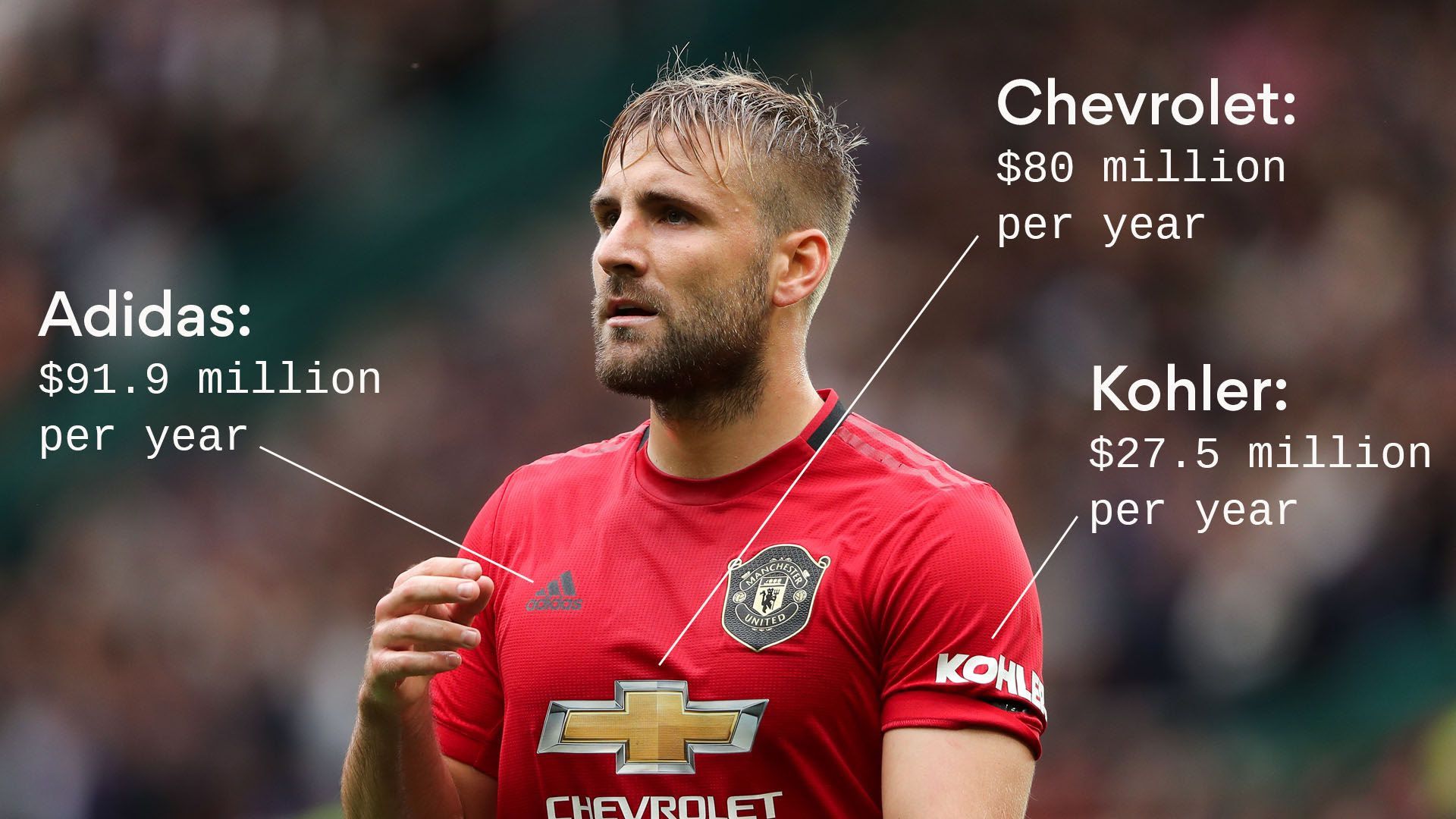Soccer jerseys are prime real estate for advertisers and sponsors
Add Axios as your preferred source to
see more of our stories on Google.

Photo: Matthew Ashton/AMA/Getty Images
The Premier League is home to some of the world's most valuable sports teams. So, naturally, it's also home to some of the world's most valuable sports real estate: the uniforms those teams wear.
How it works: Premier League teams make money from their uniforms, or "kits," in two ways: apparel deals and sponsorship deals.
- Kit supplier: While the four major North American sports leagues handle uniforms at the league-level (Nike is the official supplier for all NBA and NFL teams, for example), Premier League teams negotiate their own individual deals with companies. Examples include Adidas (Manchester United, Arsenal), Nike (Chelsea, Tottenham), Puma (Manchester City) and New Balance (Liverpool).
- Main sponsor: This is the advertisement that appears across the center of the chest. Sponsors include Chevrolet (Manchester United), Etihad Airways (Manchester City) and Standard Chartered (Liverpool).
- Sleeve sponsor: In 2017, the Premier League followed the lead of other European Leagues like La Liga (Spain) and began allowing teams to sell the rights to their left shirt sleeve. Sponsors include Western Union (Liverpool), Hyundai (Chelsea) and Kohler (Manchester United).
By the numbers: This season, Manchester United will receive $91.9 million from Adidas (kit supplier), $80 million from Chevrolet (main sponsor) and $27.5 million from Kohler (sleeve sponsor). Total: $199.4 million.
- Nike is paying $1 billion over eight years to be the official apparel provider for all 30 NBA teams, while Adidas is paying $919 million over 10 years to be the official supplier for Manchester United, alone.
The big picture: While this revenue-generating trifecta might not become the norm in the NBA, NFL, MLB and NHL (especially the team-specific apparel deals), jersey sponsorships certainly could.
- In 2017, the NBA began allowing teams to sell a jersey sponsorship patch (Rakuten pays the Warriors $20 million per season, for example), and the results have been so promising that other leagues look poised to follow suit.
- In May, I argued that NFL jersey patches feel inevitable, and last month, an MLB executive said the same thing about his own league: "[I]t's inevitable."
Go deeper: NFL jersey ads feel inevitable
